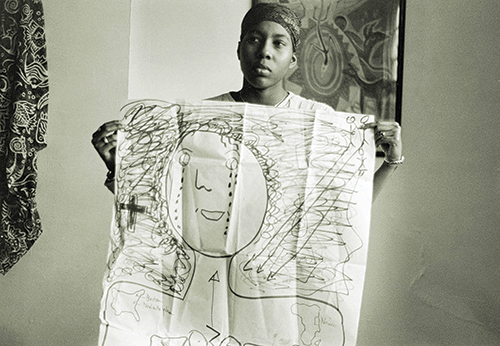
If you keep up on the news, you’ve likely seen a proliferation of articles about the Steubenville rape trials and the swell of political organizing against sexual violence in India recently.
Because discussions about rape culture have been gaining visibility in the news lately, this is a great time to educate and galvanize people to create cultures of safety and consent while supporting and empowering survivors.
An upcoming on-campus documentary screening and panel discussion focusing on sexual violence in African-American communities can help you do just that. And if you are a survivor, the event aims to offer a space to connect and listen to knowledgeable, passionate speakers from local and campus organizations.
The Women’s Resource Center, Women of Color Action Team and Multicultural Center are screening No! The Rape Documentary as part of their Reflect and Connect series next Tuesday.
After the screening, three speakers will offer their perspectives: Renee Mitchell, co-founder of the Healing Roots Center, Marianne Mulumba, president of the Association of African Students at PSU, and Diana Camarillo, sexual violence program coordinator with the Oregon Coalition Against Domestic and Sexual Violence.
“We all have a responsibility to make our communities safer for everyone,” said Tonya Jones, the WRC’s Empowerment Project coordinator. “Everyone should make it their mission to learn about this issue and what can they can do to make sure no one experiences sexual violence in their lives.”
No!, the award-winning documentary by writer/producer/director Aishah Shahidah
Simmons, confronts racial, gender and sexual oppression. The film “features riveting testimonials from black women rape survivors stories who defy victimization,” according to its website.
Jones’ goal for the program is “that students will walk away reflecting and thinking about how they can be an ally to make all of our communities safer for women of color—for all women period,” she said. “Also, hopefully they walk away respecting the voices and experiences of women of color.”
Mitchell, who is a survivor of domestic violence and sexual assault, wants to help “encourage response to these kinds of issues,” she said. “The documentary might stir up anxiety for those women who have dealt with it themselves, and this is an opportunity to provide inspiration and empowerment to rise above circumstance and the baggage we carry around because of experience with sexual assault.
“It’s important to make sure people walk away from an event like this feeling empowered and inspired rather than really emotional or dejected,” Mitchell continued. “I’m providing [an] opportunity to take the emotion of what someone might be feeling and channel it.”
Jones described the intersection of sexual assault and African-American communities, providing the context for the event.
“Images of black women are often distorted, and we are made into caricatures,” she said. “Our bodies and our sexuality tend to be degraded in mainstream media. The stereotypes prevent many people from seeing us as full human beings. Because of this, many people don’t take our experiences seriously.
“It affects how people respond to us when we are dealing with sexual assault/violence, in and outside [of] the black community,” Jones said. “Hopefully students will think about this and how important is for all of us to reject and resist negative representations of black womanhood.”
Jones recognizes that, of course, sexual violence is prevalent across all demographics, but the event will mainly focus on the specific experience of women of color.
“I don’t think that sexual assault/violence is any more prevalent in the black community than other communities,” Jones said. “I just think because of the cultural representations of black women in our ‘white supremacist capitalist patriarchy’—a term coined by black feminist author bell hooks—the response and attention to this issue regarding black women tends to be marginalized. The showing of this film is just a way to give space to black women’s experiences. It is not to demonize the black community or black men.”
Both Jones and Mitchell underscored the crucial role of men as allies in preventing sexual assault.
No! The Rape Documentary
Part of the Reflect and Connect series
Tuesday, April 23, 5–7 p.m.
Multicultural Center, SMSU, room 220
Free and open to the public
Light refreshments provided
“It’s not just a film or issue for women to deal with. It’s also an issue more men need to get involved in, and understand various perspectives from the survivors’ point of view,” Mitchell said. “We need to make sure men don’t feel excluded; they need to be included very heavily.”
Jones echoed Mitchell’s sentiment.
“It will take the work of everyone!” Jones said. “This is not just a women’s issue. It’s why I think Ms. Simmons’ film is so important. She is not only giving space to the voices of black women, but includes men’s groups/advocates/activists [who of their own accord] are working to dismantle violence against women by educating other men.”
No matter where you are coming from on these issues, the event promises to be educational and inspiring—providing students with a sense of purpose, support and community when it comes to facing an important global problem that impacts us all.

